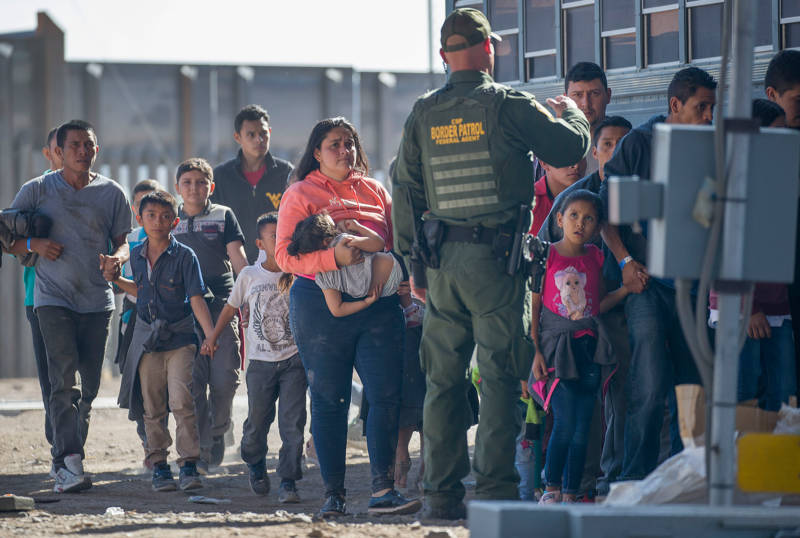President Andrés Manuel López Obrador has promised to provide those things, but the reality in Nuevo Laredo turned out to be different.
The returnees were met at the crossing by Mexican immigration officials who handed them documents presumably allowing them to work and move about the country. Without further explanation they were then loaded at an immigration station parking lot onto buses with the logos of private companies with charter contracts with the INM.
The migrants were not forced to make the journey but said they didn’t see any other option. They know the dangers in Tamaulipas, where organized crime groups have been known to extort, kidnap and kill vulnerable migrants. In 2010, 72 migrants were massacred in the town of San Fernando.
In Monterrey they found a big, unfamiliar city where, unbeknownst to them, shelters were already overflowing, and it quickly became clear they’d have to make do as best they could.
Some asked the bus driver for advice on where to go. Others asked locals to borrow cellphones to beseech relatives for money or call their “coyotes,” or smugglers, to try to cross illegally again into the U.S.
“They have abandoned us here to get rid of us,” said Jazmin Desir, sitting on the floor of the bus terminal surrounded by her four sleeping children. The hair stylist and her husband, a mechanic, were waiting for relatives to send money for them to get back to Honduras, which they figured would take two years to pay off.
Within a half-hour only a handful remained at the terminal. The rest had melted away into the city.
Two days later, with money wired from relatives, a group hired a bus to take them to the southern city of Tapachula, near Guatemala. From there they would make their way home — essentially self-deporting at their own expense, about $100 each for the 1,000-mile (1,700-kilometer) journey.
“After suffering so much, this is what we long for,” said Neftalí Anael Cantillana, a Honduran teacher traveling with her 16-year-old son.
At least one other group arranged a similar trip according to Jorge Pérez, the driver who took them.
López Obrador’s government did not mention the busings on Monday when it presented a report halfway into a 90-day period during which it has agreed to reduce irregular transmigration as part of a deal to head off threatened U.S. tariffs.
